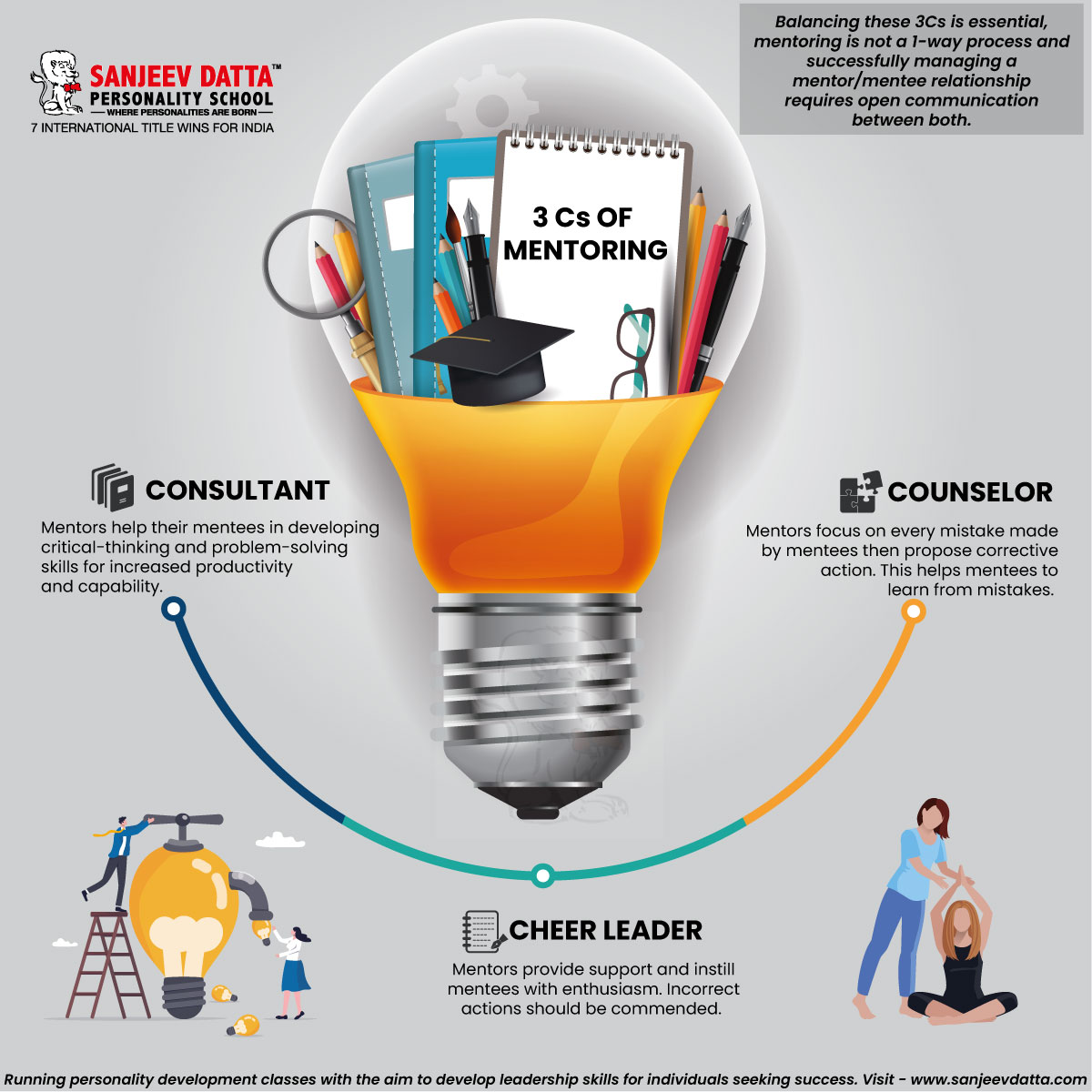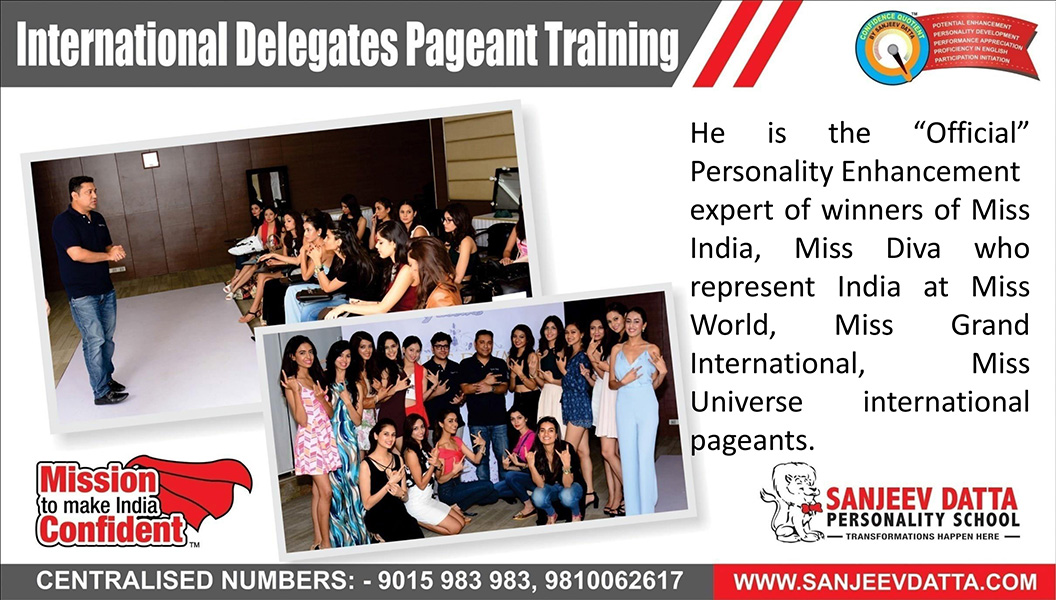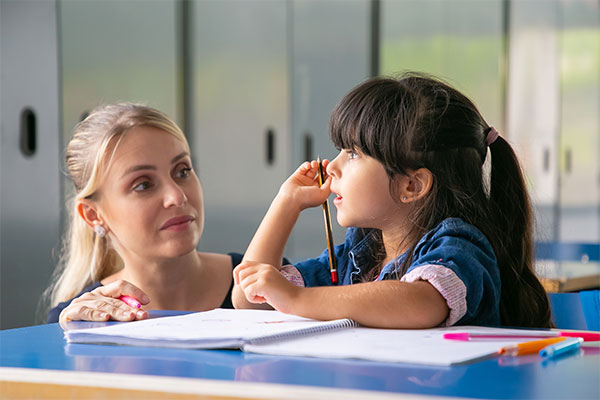Mentoring is a professional and personal growth connection between two persons. A “mentor” is usually a more experienced person who offers his or her expertise, experience, and guidance to a “mentee.” A mentor helps you grow as a person by assisting you in becoming the finest version of yourself. This could include assisting you in achieving your personal or professional objectives, introducing you to new ways of thinking, challenging your limiting beliefs, sharing life lessons, and much more. Mentoring relationships are based on trust, confidentiality, mutual respect and sensitivity. Mentoring facilitates knowledge transmission by allowing people to learn from one another. Mentoring is crucial in every aspect of our life as it helps us gain various life skills needed for one to succeed. Contemplation, initiation, facilitating growth and maintenance, decline and dissolution and redefinition are the five stages of mentoring. These stages of mentoring build on one other and are of varying lengths.
5 Stages of Mentoring:
-
Contemplation:
The potential mentor or mentee considers joining a mentoring program during the first stage of contemplation. It is the basic stage where one is confused and trying out different programs. Interested partners learn about the program and assess whether it is a good fit during this phase. They imagine themselves in the role of mentor or mentee and determine whether or not they want to pursue it. The contemplation stage makes one understand the concept of mentoring. If they do decide to take part in this stage it will further carry on through the application, screening, and training stages. Following that, volunteers, youth, parents, and guardians will begin to create expectations for the match. This is the time to think about your relationship and how you want it to develop. Mentors frequently obtain more information and training during this era than young people. This can assist them in setting reasonable goals. Both mentors and mentees are excited in this stage of mentoring.
2. Initiation:
Application to the mentoring program, screening and training, and finally being matched with a mentor or mentee are all part of the initiation stage. This first encounter between mentor and mentee can be both thrilling and nerve-wracking. By talking about expectations and making sure they are realistic, program staff and parents can make this phase more comfortable. The best personality development trainer describes this stage as the courtship or fantasy stage. One tends to avoid conflicts and work hard in this stage as it’s like the beginning of a new relationship. Although the initiation stage of a mentoring relationship is only a few weeks long, the first impressions established during this time can last a lifetime. Show there on time, communicate properly, and be enthusiastic about the experience to make a good first impression. During the initial meetings, mentors should prepare to take the lead and gradually build the trust necessary to get to the growth and maintenance stage.
3. Facilitating Growth and Maintenance:
This is considered the longest stage of mentoring. The connection evolves and matures as it grows and maintains itself. Mentors and mentees are not attempting to impress one another any longer. Rather, they are forging a bond of trust and may begin to reveal a more vulnerable aspect of themselves. This is a stage that appears after all the awkwardness gets over and one starts to develop a real bond and relationship with each other by being vague about their thoughts and feelings. Here a mentee starts taking lead in choosing activities, personal information is being shared due to the built trust. One is completely transparent in this stage as the comfort level has been set.
4. Decline and Dissolution:
People join a formal mentoring relationship with the expectation that it would terminate, unlike most other relationships. The purpose of mentoring is for the relationship to last at least a year or a school year. Matches might go on for longer or shorter than expected. Getting an appropriate closure is important for both the mentee and the mentor. Throughout the mentoring session, it is a good idea to bring up the topic of closure. When kids know closure is coming, they have some warning, and they don’t feel responsible, they manage it the best. You can learn efficient closure from a personality development course, closure should always be positive and healthy as it involves mentees’ feelings and comfort.
5. Redefinition:
Redefinition is the final stage of a mentoring relationship between the mentor and mentee. This is when the mentor and mentee, with the help of parents and program officials, decide what the next steps should be for the relationship. There are numerous solutions available to you. The choice that both the mentor and the mentee can commit to is the greatest option. One can continue the mentoring relationship or one can get complete closure and move forward in one’s life with acquired knowledge. Each party should consider the numerous possibilities and select what is best for them in the future. Staff from the program can assist in facilitating the discussion and bringing it to a successful conclusion.
Visit: importance of mentoring in education
These stages of mentoring help shape one’s life by providing mentoring and understanding one’s behavior and nature to make one more capable to succeed in the future.
Our workshops have been calibrated after years of research and practice. We value every person as an individual entity who deserves attention, growth with our higher rapport. Our focus is to connect with the individual on a personal-professional level and develop his/her skills. TAM techniques based session, our workshops aim to upgrade & up-skill. All online workshop session duration: 40 mins, payable in advance. Note: Time once fixed & allocated to our trainer for the session cannot be changed.
Contact us to know more…








